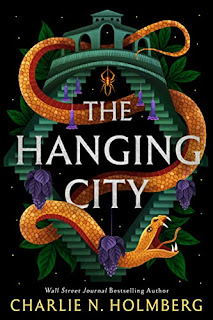The Algerian revolution seen through a young woman's eyes - Review of "When the apricots bloom"
 A few months ago an elderly gentleman and I were both waiting on the board of a Scottish lake for our friends who had gone with a boat to explore a castle. He told me he had been teaching architecture all over the world but mostly in Arab countries. "You know," he said, "Those people must have suffered so much under the French rule. Almost all my students dedicated their thesis to a fallen grandfather or father." We both had to confess we did not know much of that era. The only thing I knew was told to me by the son of some pied-noirs (French settlers in North Africa) I had been totally smitten with in university in Istanbul. His grandmother was Tuareg and all the rest of his family was French. While he wore a Tuareg symbol around his neck he despised all Arabs. Something I did not understand then as in my eyes he was partly exactly that.
A few months ago an elderly gentleman and I were both waiting on the board of a Scottish lake for our friends who had gone with a boat to explore a castle. He told me he had been teaching architecture all over the world but mostly in Arab countries. "You know," he said, "Those people must have suffered so much under the French rule. Almost all my students dedicated their thesis to a fallen grandfather or father." We both had to confess we did not know much of that era. The only thing I knew was told to me by the son of some pied-noirs (French settlers in North Africa) I had been totally smitten with in university in Istanbul. His grandmother was Tuareg and all the rest of his family was French. While he wore a Tuareg symbol around his neck he despised all Arabs. Something I did not understand then as in my eyes he was partly exactly that.This week I was reading a very good book written by Roberta Forrest and found out she had written another one as well. One about a Arab woman who was adopted into a French family and who ended up in the middle of a changing and violent Algeria. Me the refugee lawyer expected it to be set in the nineties when due to the GIA Algeria was bathing in blood and violence. But it turned out to be narrating the period of the Algerian Independence war in the sixties.
Maryse Rose is found as a baby in the desert by a family of influential French settlers. They adopt her and she grows up with loving parents and a brother and a jealous sister. Her early years are without sorrow but just when she is coming of age the first terrorist attacks of Arabs take place and the days of playing in Roman ruins and swimming in the sea come to an end. The French send their troops who just lost the war in Indochine to keep the peace but they are so cruel and cultural insensitive that they drive people towards the rebel cause. Life changes dramaticly for all involved.
What I like in the book is that the writer is not taking sides. While her French officer husband, her strong arm fascist pied noir brother and her Arab rebel lover are all in itself loving and caring men for her, all the atrocities of all sides are shown too. The soldiers who just rape and kill any Arab, bomb villages, the Arab women who cut off the balls of prisoners after having prodded their penises with trigs, the pied noirs who start bombing French targets, who sack all Arab personnel. People losing all they have.
While reading the book a sense of dread or fear what evil will be lurking around the corner starts to grip you. Unlike any history book exactly that is what makes this book so worthwhile. I makes you see how scary living in a civil war really is. And exactly that is what many people are now doing in part of this world.
Luckily it also tries to tell us there is real love in this world. Do not expect a sweet romance book though. This is more grim history.
AMAZON:
"In the mysterious wastes of the Algerian Sahara desert a French family make a miraculous discovery - a new-born Arab baby girl alive, but left to die beneath a rock.
Adopted by the Charpentiers, an extremely wealthy family, eighteen years later Maryse Rose has grown into a beautiful young women - educated at finishing school in France, and brought up amongst wealth and luxury in the Algerian sunshine. But when she falls in love and spends a night with Philippe Viard a young French soldier, Maryse is exiled to Paris in disgrace. Whilst there, training as a nurse, she meets an elegant young Arab, Habib Saadi. Unknown to Maryse, Habib is an Algerian freedom fighter and Maryse becomes suspected of being a terrorist.
Returning to Algeria she finds that the country of her youth no longer exists; the clubs, restaurants, the mountains and sweeping gold beaches are targets for terrorists. Death is easily found and Algeria has become a dangerous place to live, and especially for a proud young girl whose loyalties are divided.
Meticulously researched by the author, the realism of the Algerian wartime background will startle and enthral the reader. The places described are not imaginary, they existed, as did many of the events that take place in the book.The story of Maryse is not only of her loves, but also her desperate fight for her own survival amidst the turmoil of violence."





Comments
Post a Comment